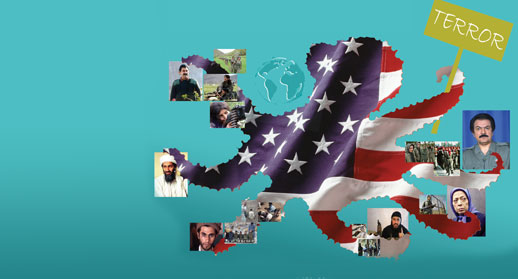| Regarding the assassinations of Iranian scientists, which are acts of war, have actually been carried out by followers of the dissident Iranian Mujahedin e-Khalq (MEK), the separatist Baluch Jundallah, and the Kurdish PJAK, all acting under direction from American and Israeli intelligence officers. |
 Philip Giraldi, former CIA officer, in an article analyzed US flimsy pretexts for putting pressures on Iran by taking steps to freeze assets of Central Bank of Islamic Republic of Iran, financing and training terrorist proxies for acts of sabotage against its citizens and Revolutionary Guards, assassinating its scientists, and so on, Habilian Association database quoted Antiwar as reporting.
Philip Giraldi, former CIA officer, in an article analyzed US flimsy pretexts for putting pressures on Iran by taking steps to freeze assets of Central Bank of Islamic Republic of Iran, financing and training terrorist proxies for acts of sabotage against its citizens and Revolutionary Guards, assassinating its scientists, and so on, Habilian Association database quoted Antiwar as reporting.
Following the widely reported Iranian government plot to assassinate the Saudi ambassador in Washington, the White House has issued several findings to the intelligence community authorizing stepped-up covert action Tehran.
A “finding” is top-level approval for secret operations considered to be particularly politically sensitive. Taken together, the recent findings, combined with the evidence of major intelligence operations being run in Lebanon, amount to a secret war against Iran and its allies in the Mideast.
Since 2008 the United States has regarded the Iranian Revolutionary Guard as a terrorist organization. This enables the Department of the Treasury to freeze its business interests and bank accounts. But it has also permitted aggressive steps against the group itself, including killing its members under the White House doctrine that all terrorists are potential targets anywhere in the world.
A finding approved by the Bush administration in 2003 and strengthened in 2006 on the pretext that Iran was “interfering” in Iraq and Afghanistan authorized the use of intelligence assets to disrupt Iranian Revolutionary Guard activity in border zones. These included areas adjacent to Pakistan inhabited by ethnic Baluchs, the Kurdish region of northern Iraq, and the ethnically Arab province of Khuzestan, which borders southeastern Iraq.
Activity in the Kurdish region was most intense because it was regarded as a more permissible operating environment with a long, open border and a friendly local government in Arbil, but it was limited by Turkish sensitivities and was partially run by Israelis to provide deniability by the U.S. That effort was abandoned altogether in 2009, when the Obama administration decided to double down on the Turkish relationship, increasing intelligence and military cooperation with Ankara against the Kurdish Workers’ Party (PKK). Attacks in Baluchestan and the Arab region over the past seven years have continued intermittently, however, killing a large number of Revolutionary Guards and even more civilians.
A separate finding on Iran’s alleged nuclear weapons program was signed in 2007 by President Bush. It authorized attacks against Iranian nuclear scientists and other facilities in Tehran and elsewhere as well as coordination with the Israelis to develop computer viruses to disrupt the Iranian computer network, a program that led to the production of the Stuxnet worm.
 Regarding the assassinations of Iranian scientists, which are acts of war, have actually been carried out by followers of the dissident Iranian Mujahedin e-Khalq (MEK), the separatist Baluch Jundallah, and the Kurdish PJAK, all acting under direction from American and Israeli intelligence officers.
Regarding the assassinations of Iranian scientists, which are acts of war, have actually been carried out by followers of the dissident Iranian Mujahedin e-Khalq (MEK), the separatist Baluch Jundallah, and the Kurdish PJAK, all acting under direction from American and Israeli intelligence officers.
The MEK’s role in doing the CIA’s and Mossad’s dirty work is one reason so many neoconservatives and national security experts have been calling for the group to be removed from the U.S. terrorist group list.
The new finding on Iran extends existing initiatives and is intended to strangle Iran by creating insurgencies along all of the country’s borders. It includes involvement with the Azeris, who inhabit northwestern Iran and share a common border, language, and culture with the people of Azerbaijan. This is precisely what the covert action seeks to exploit by encouraging ethnic fragmentation in the country’s border regions and supplying dissidents with communications equipment, training, money, and weapons.
Not at all coincidentally, the foreign minister of Azerbaijan, Elmar Mammadyarov, visited Brussels in October to discuss issues of common concern with NATO. He met with U.S. officials and, inter alia, received private intelligence briefings focused on the “Iranian threat.”
